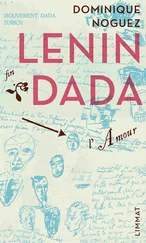Lars Lih - Lenin
Здесь есть возможность читать онлайн «Lars Lih - Lenin» весь текст электронной книги совершенно бесплатно (целиком полную версию без сокращений). В некоторых случаях можно слушать аудио, скачать через торрент в формате fb2 и присутствует краткое содержание. Город: London, Год выпуска: 2012, ISBN: 2012, Издательство: Reaktion Books, Жанр: Биографии и Мемуары, История, на английском языке. Описание произведения, (предисловие) а так же отзывы посетителей доступны на портале библиотеки ЛибКат.
- Название:Lenin
- Автор:
- Издательство:Reaktion Books
- Жанр:
- Год:2012
- Город:London
- ISBN:9781780230030
- Рейтинг книги:3 / 5. Голосов: 1
-
Избранное:Добавить в избранное
- Отзывы:
-
Ваша оценка:
- 60
- 1
- 2
- 3
- 4
- 5
Lenin: краткое содержание, описание и аннотация
Предлагаем к чтению аннотацию, описание, краткое содержание или предисловие (зависит от того, что написал сам автор книги «Lenin»). Если вы не нашли необходимую информацию о книге — напишите в комментариях, мы постараемся отыскать её.
Lenin — читать онлайн бесплатно полную книгу (весь текст) целиком
Ниже представлен текст книги, разбитый по страницам. Система сохранения места последней прочитанной страницы, позволяет с удобством читать онлайн бесплатно книгу «Lenin», без необходимости каждый раз заново искать на чём Вы остановились. Поставьте закладку, и сможете в любой момент перейти на страницу, на которой закончили чтение.
Интервал:
Закладка:
The manifest duty of socialists everywhere was therefore to ‘turn the imperialist war into a civil war’ – that is, to use the crisis caused by the war in order to accelerate the revolution on a national and international scale. But, as Lenin observed with horror, a large majority of European socialist leaders had reneged on this duty when they supported their own government’s war effort. Lenin already believed that ‘opportunism’ – the deluded hope that socialism could be achieved other than by class revolution – was an insidiously powerful force in the European Social Democratic parties. Majority socialist support for the war convinced him that the rot of opportunism had infected Social Democracy at its core. In a Bolshevik manifesto drafted by Lenin in October 1914 he announced ‘with deepest sorrow’ that ‘the most influential socialist leaders’ had ‘defamed socialism’. Their conduct inspired ‘a burning feeling of shame’, because they ‘dishonoured the banner’ of revolutionary Social Democracy. 4
According to many writers on Lenin the shock of socialist betrayal in 1914 kicked off a process of rethinking that led to the rejection of what he had earlier considered to be Marxist orthodoxy. According to Lenin himself it was not he who had changed but the others. He insisted that the vision of a world in revolution that I have just outlined was part and parcel of a universal consensus among pre-war revolutionary Marxists. Thus comments such as this one are a constant feature of his wartime rhetoric: ‘there is no need here for us to prove that the objective conditions in Western Europe are ripe for a socialist revolution; this was admitted before the war by all influential socialists in all advanced countries’. 5
Lenin presented himself not as a bold innovator or a fearless rethinker but as someone faithful to the old verities – as the socialist leader who kept his head while all about him were losing theirs. This is how he could walk off the train in Bern in September 1914 and start agitating that very day on the basis of a platform that remained unchanged until the outbreak of the Russian revolution in spring 1917. This is how he had the amazing self-assurance to defy the entire socialist establishment in the name of Marxist orthodoxy.
The emotional content of Lenin’s politics during this period cannot be understand without grasping his ferocious anger at the way that socialist leaders reneged on their own word . For Lenin one of the most glaring examples of this behaviour – an example he recalled again and again – was the refusal to honour the declaration issued by the Basel International Congress of 1912. There, in solemn conclave assembled, the representatives of European Social Democratic parties had resolved that in the event of war, Social Democrats would ‘use the economic and political crisis created by the war to rouse the masses and thereby hasten the downfall of capitalist class rule’. 6
Lenin had a personal relation to the mandate of the Basel Congress, since he himself, along with Rosa Luxemburg and L. Martov, had been instrumental in adding a similar pledge to a resolution passed by an earlier international socialist congress in 1907. This personal connection was just one more reason why Lenin saw the Basel Manifesto of 1912 as an expression of Social Democratic consensus, as a summary of ‘millions and millions of proclamations, newspaper articles, books, speeches of the socialists of all countries’ from the entire epoch of the Second International (the international socialist organization that united the main socialist parties from the mid-1890s to 1914). ‘To brush aside the Basel Manifesto means to brush aside the whole history of socialism.’ 7
Lenin blamed ‘opportunism’ for this betrayal and his feelings found expression in an emotional call for purification: ‘The European war has done much good to international socialism in that it has disclosed the whole extent of the rottenness, vileness, and meanness in opportunism, and thereby has given a wonderful stimulus for purging the worker movement of the dung which had accumulated during the decades of the peaceful epoch.’ 8Many European socialists were taken aback by Lenin’s purificatory zeal. A French socialist who supported his country’s war effort, Solomon Grumbach, no doubt spoke for many:
In speaking of [Lenin and Zinoviev] we deal with the Grand Inquisitors of the International, who fortunately lack the power of carrying out their ideas, for otherwise Europe would have known many more funeral pyres and quite a few of us would have been seared over a slow fire to the accompaniment of Leninist hymns on the ‘only true Leninist socialism’ and would have thrown into the hell of socialist traitors as lost filthy-bourgeois-chauvinist-nationalist-social-patriotic souls. 9
The same reaction of disappointed anger accounts for Lenin’s feelings toward the person who was probably the central figure in his emotional life during this period: Karl Kautsky. Lenin read with horror Kautsky’s many articles of autumn 1914 in which Kautsky seemed to tie himself in knots, not exactly in order to defend the new opportunism, but to excuse it, to cut it as much slack as possible, to avoid burning bridges within the party. Lenin’s consequent obsession with Kautsky was so overwhelming that it puzzled some of his own sympathizers, who knew that Kautsky was rapidly becoming a marginal figure in German socialism. Kautsky became the focus of Lenin’s anger because he embodied not only the pre-war Marxist orthodoxy to which Lenin still swore loyalty but also the refusal to live up to that orthodoxy when the chips were down. In letters written in autumn 1914 Lenin vented his feelings. ‘Obtain without fail and reread (or ask to have it translated for you) Road to Power by Kautsky [and see] what he writes there about the revolution of our time! And now, how he acts the toady and disavows all that!… I hate and despise Kautsky now more than anyone, with his vile, dirty, self-satisfied hypocrisy.’ 10
Lenin followed his own advice: he reread Kautsky’s 1909 publication Road to Power and devoted a whole article to the contrast between what Kautsky wrote there and what he was writing now. 11Indeed, Lenin took his own vision of global revolution more from Kautsky than from any other writer. As Kautsky wrote in Road to Power , ‘today, the battles in the liberation struggle of labouring and exploited humanity are being fought not only at the Spree River and the Seine, but also at the Hudson and Mississippi, at the Neva… and the Dardanelles, at the Ganges and the Hoangho.’ 12In contrast the wartime Kautsky seemed to Lenin to be an embodiment of philistinism, the age-old enemy of Lenin’s heroic scenario, and Lenin’s extensive anti-philistine vocabulary peppers every page of his many anti-Kautsky diatribes. Lenin coined a term for this new and insidious form of philistinism: kautskianstvo , defined as the use of orthodox phraseology as a cover-up for de facto opportunism. Kautskianstvo is usually given the misleading translation ‘Kautskyism’, but this rendering implies that Lenin is rejecting the system of views propagated by Kautsky before the war. On the contrary the term kautskianstvo affirms Lenin’s loyalty to Kautsky’s pre-war views by violently condemning his ‘renegade’ behaviour in failing to live up to them. The intensity of Lenin’s feelings about Kautsky after 1914 reminds one of a disappointed lover – and perhaps that is the best way to look at it. Lenin hated Kautsky because he loved Kautsky’s books.
Immediately upon arriving in Switzerland in September 1914 Lenin moved to get Europe-wide support for his platform. As the anti-war currents in the socialist movement began to get their bearings after the August catastrophe of socialist support for the war, Lenin became the main spokesman for what became known as the Left Zimmerwald movement. The geographic part of this label came from the small resort town 10 kilometres south of Bern, where disaffected socialists from a number of countries came together on 5 September 1915 to discuss aims and strategy. Few in number as they were, and isolated as they seemed to be from the socialist mainstream, the delegates felt confident that their influence could only grow as the war dragged on.
Читать дальшеИнтервал:
Закладка:
Похожие книги на «Lenin»
Представляем Вашему вниманию похожие книги на «Lenin» списком для выбора. Мы отобрали схожую по названию и смыслу литературу в надежде предоставить читателям больше вариантов отыскать новые, интересные, ещё непрочитанные произведения.
Обсуждение, отзывы о книге «Lenin» и просто собственные мнения читателей. Оставьте ваши комментарии, напишите, что Вы думаете о произведении, его смысле или главных героях. Укажите что конкретно понравилось, а что нет, и почему Вы так считаете.












